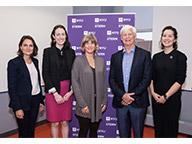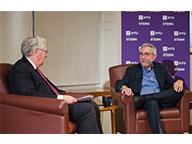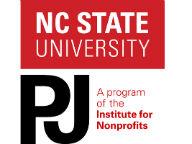Faculty News
—
Professor Arun Sundararajan discusses his research findings in an article about proposed legislation in Boston to restrict Airbnb; his book, "The Sharing Economy," is also referenced
—

Excerpt from The Christian Science Monitor -- "'In cities like New York and Boston, given the high cost of residential housing, there is little or no evidence that you can actually take a unit off the longer term market, run it as an Airbnb, and make money,' says Arun Sundararajan, a professor of business at New York University and author of 'The Sharing Economy,' a book that explores how on-demand platforms will change society."
Faculty News
—

Excerpt from The Christian Science Monitor -- "'In cities like New York and Boston, given the high cost of residential housing, there is little or no evidence that you can actually take a unit off the longer term market, run it as an Airbnb, and make money,' says Arun Sundararajan, a professor of business at New York University and author of 'The Sharing Economy,' a book that explores how on-demand platforms will change society."




















